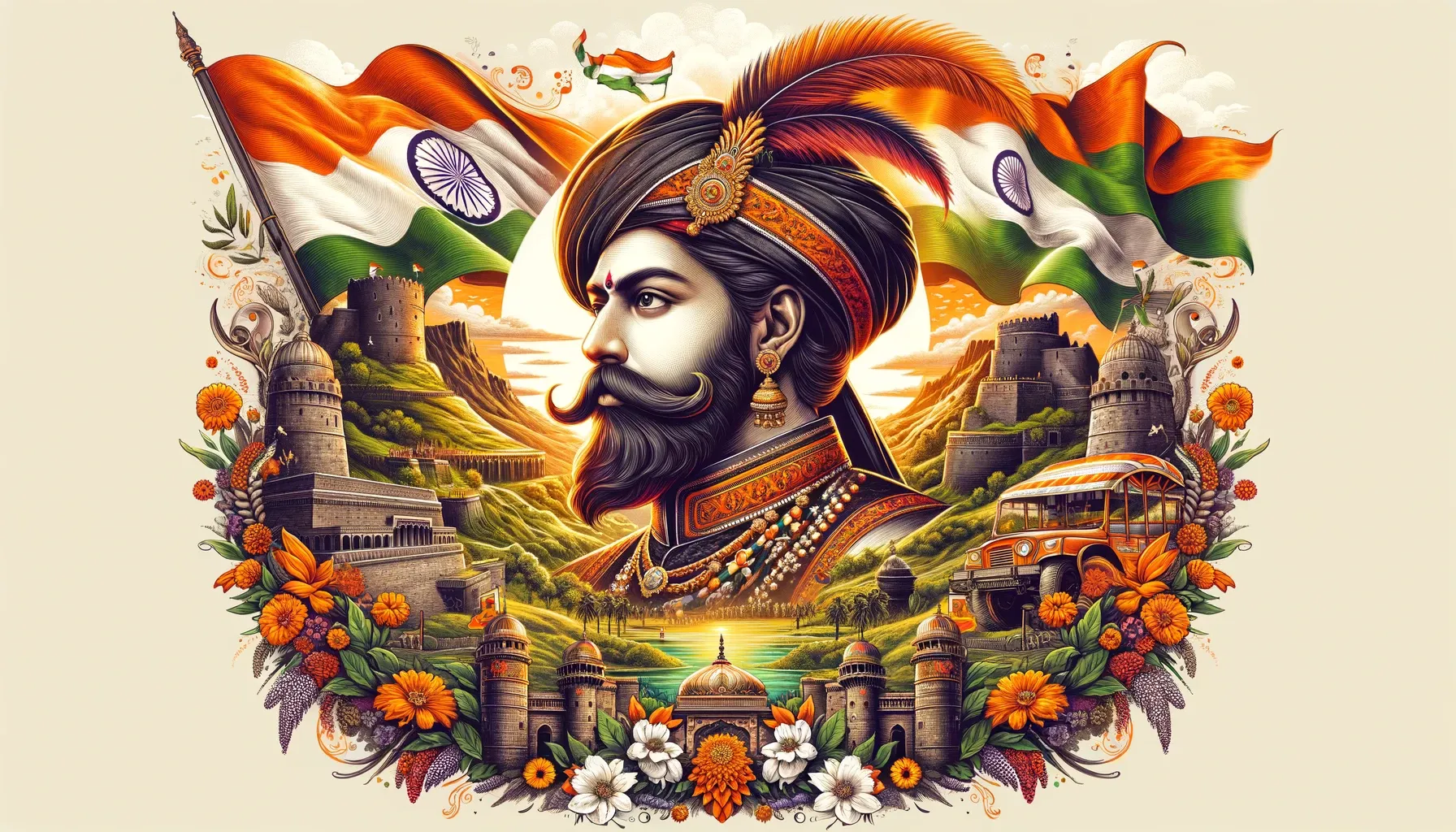Chhatrapati Shivaji Maharaj Jayanti (February 19, Monday)
- Chhatrapati Shivaji Maharaj, a name that resonates with valor, strategy, and governance, is not just a historical figure but an enduring symbol of resistance and wisdom in the face of adversity. His birth anniversary, known as Shivaji Maharaj Jayanti, is celebrated with great fervor, reflecting the profound impact of his legacy on Indian culture and history. This article delves into the life of Shivaji Maharaj, exploring his significant contributions, the annual celebrations of his Jayanti, and why his story remains inspirational centuries later.
Introduction to Chhatrapati Shivaji Maharaj:
- Born into a Maratha family in the 17th century, Shivaji Maharaj's life was marked by his exceptional leadership skills and innovative military tactics. From a young age, he showed an acute awareness of the socio-political dynamics of his time, which later helped him establish a competent and progressive administration. His rise to power was not just a testament to his martial prowess but also his diplomatic acumen and visionary approach to governance.
The Significance of Shivaji Maharaj Jayanti:
- Shivaji Maharaj Jayanti is not merely a day to remember a historical figure; it's a celebration of the spirit of independence, justice, and progress. It highlights Shivaji's role in laying the foundations of the Maratha Empire and his contribution to the cultural and societal development of the region. This day serves as a reminder of his unwavering commitment to Swarajya (self-rule) and his efforts to protect his land and people from foreign domination.
Shivaji's Governance and Administration:
- Shivaji Maharaj was ahead of his time in terms of administrative practices and governance. He implemented a well-structured administrative system, promoting meritocracy and ensuring accountability. His policies focused on the welfare of his subjects, with significant emphasis on agriculture, trade, and the maintenance of law and order. His military reforms and strategic fortifications played a crucial role in the defense of his empire against invaders.
Fort Architecture and Shivaji Maharaj:
- The forts of Shivaji Maharaj are marvels of military architecture, reflecting his strategic foresight. These forts, situated on hilltops and along the coastline, were not just defensive structures but also served as administrative centers and marketplaces. Their design principles, incorporating water harvesting and storage, as well as their accessibility and sustainability, are studied even today.
Shivaji's Naval Prowess:
- Recognizing the importance of maritime strength, Shivaji Maharaj established a potent naval force to protect the Konkan coastline against pirates and foreign invaders. His naval campaigns were pioneering in Indian history, setting the stage for maritime defense strategies that were far ahead of their time.
The Maratha Confederacy and Shivaji:
- Shivaji Maharaj's establishment of the Maratha Confederacy laid the groundwork for what would become a formidable force in Indian history. His legacy was carried forward by his successors, who expanded the empire, maintaining its ethos of resilience and independence. The confederacy played a crucial role in challenging Mughal dominance in India, paving the way for a decentralized power structure.
Shivaji's Legacy in Modern India:
- Today, Shivaji Maharaj's legacy is evident in numerous memorials, museums, and educational institutions named after him. He continues to inspire leaders and individuals across the nation, symbolizing the ideals of bravery, justice, and integrity. His life and teachings are incorporated into school curricula, ensuring that future generations understand and appreciate his contributions to India's cultural and historical heritage.
Celebrating Shivaji Maharaj Jayanti Today:
- The celebration of Shivaji Maharaj Jayanti goes beyond traditional rituals; it encompasses a range of cultural activities, including parades, speeches, and educational programs. These events serve to educate the public about Shivaji's principles and to inspire a sense of pride and unity among them. The Jayanti also prompts discussions on governance, strategy, and national integrity, reflecting on how Shivaji's ideologies can be applied in contemporary times.
- Shivaji Maharaj Jayanti is a testament to the lasting impact of Chhatrapati Shivaji Maharaj on Indian society and its cultural fabric. His life and legacy, celebrated annually, remind us of the enduring values of courage, innovation, and leadership.
Conclusion:
- Chhatrapati Shivaji Maharaj Jayanti is not just a day of historical remembrance but a celebration of a legacy that continues to inspire and guide. His visionary leadership, strategic prowess, and commitment to justice and welfare remain relevant, encouraging us to reflect on our cultural roots and strive for excellence in our endeavors.
FAQs:
When is Chhatrapati Shivaji Jayanti celebrated?
- Chhatrapati Shivaji Maharaj Jayanti is celebrated on 19th February every year.
When and where was Chhatrapati Shivaji born?
- Chhatrapati Shivaji Maharaj was born on February 19, 1630, in the hill fort of Shivneri, near the city of Junnar in the Pune district of Maharashtra, India.
When did Lokmanya Tilak start Shiva ji Jayanti festival?
- Lokmanya Tilak started the Shiv Jayanti festival in the late 19th century (year 1894) to foster a sense of nationalism and cultural pride among Indians during the British Raj. He saw Chhatrapati Shivaji Maharaj as a symbol of courage and a hero who fought against foreign domination, and by commemorating Shivaji's birth anniversary, Tilak aimed to inspire the Indian people to unite against the British rule and work towards India's independence.
What is the Name of Mother And Father of Chhatrapati Shivaji Maharaj?
- The mother of Chhatrapati Shivaji Maharaj was Jijabai, and his father was Shahaji Bhonsle.
What was the name of Chhatrapati Shivaji's guru?
- Chhatrapati Shivaji Maharaj's guru was Samarth Ramdas Swami, a revered saint and spiritual advisor in 17th-century India.
Please follow us on our social site and YouTube and subscribe to our website.
Manage your business cash flows and payable/receivables using our Bahi Khata App.
